Funding & Research Organizations
Biotechnology and Biological Sciences Research Council
BBSRC invests in world-class bioscience research and training on behalf of the UK public. Our aim is to further scientific knowledge, to promote economic growth, wealth and job creation and to improve quality of life in the UK and beyond.
Funded by Government, BBSRC invested over £509M in world-class bioscience in 2014-15. We support research and training in universities and strategically funded institutes. BBSRC research and the people we fund are helping society to meet major challenges, including food security, green energy and healthier, longer lives. Our investments underpin important UK economic sectors, such as farming, food, industrial biotechnology and pharmaceuticals.
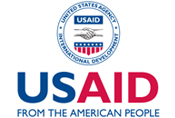
United States Agency for International Development
USAID is the lead U.S. Government agency that works to end extreme global poverty and enable resilient, democratic societies to realize their potential.
Grains Research and Development Corporation
The Grains Research and Development Corporation (GRDC) is one of the world’s leading grains research organisations, responsible for planning, investing in and overseeing RD&E to deliver improvements in production, sustainability and profitability across the Australian grains industry.
The GRDC’s primary objective is to drive the discovery, development and delivery of world-class innovation to enhance the productivity, profitability and sustainability of Australian grain growers and benefit the industry and the wider community.

United States Department of Agriculture
Agricultural Research Service
The Agricultural Research Service (ARS) is the U.S. Department of Agriculture’s chief scientific in-house research agency. ARS conducts research to develop and transfer solutions to agricultural problems of high national priority and provide information access and dissemination to ensure high-quality, safe food, assess the nutritional needs of Americans, sustain a competitive agricultural economy, enhance the natural resource base and the environment, and provide economic opportunities for rural citizens, communities, and society as a whole. Our job is finding solutions to agricultural problems that affect Americans every day from field to table. Here are a few numbers to illustrate the scope of our organization: 750 research projects within 17 National Program, 2000 scientists and post docs, 6,000 other employees, 90+ research locations, including overseas laboratories. A total of a US$1.1 billion fiscal year budget.

National Institute of Food and Agriculture
The National Institute of Food and Agriculture (NIFA) provides leadership and funding for programs that advance agriculture-related sciences. We invest in and support initiatives that ensure the long-term viability of agriculture. NIFA collaborates with leading scientists, policymakers, experts, and educators in organizations throughout the world to find innovative solutions to the most pressing local and global challenges. NIFA is the extramural science funding agency within USDA’s Research, Education, and Economics mission area.
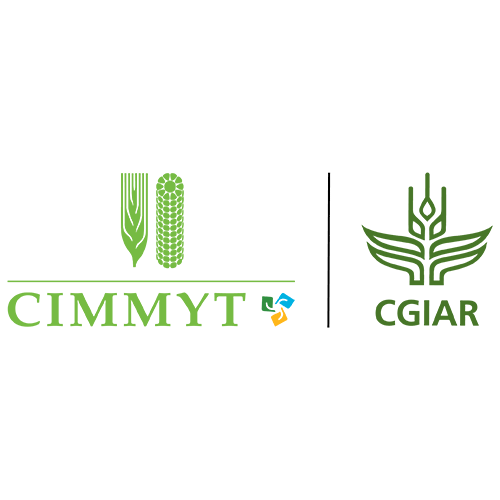
International Maize and Wheat Improvement Center
Headquartered in Mexico, the International Maize and Wheat Improvement Center (CIMMYT) is the global leader in research for development in wheat and maize and wheat- and maize-based farming systems. CIMMYT works throughout the developing world with hundreds of partners to sustainably increase the productivity of maize and wheat systems to improve global food security and livelihoods.
CIMMYT-derived wheat varieties cover nearly 100 million hectares – almost two-thirds of the area sown to improved wheat worldwide – and contribute to a major portion of the $2.2 to $3.1 billion in yearly benefits attributed to CGIAR wheat breeding research.
CIMMYT is a member of the CGIAR Consortium and leads the Consortium Research Program WHEAT. CIMMYT receives support from national governments, foundations, development banks and other public and private agencies.
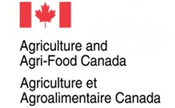
Agriculture and Agri-Food Canada
Agriculture and Agri-Food Canada (AAFC) provides leadership in the growth and development of a competitive, innovative and sustainable Canadian agriculture and agri-food sector.
The activities of the Department range from the farmer to the consumer, from the farm to global markets, through all phases of producing, processing and marketing of farm, food and bio-based products. Agriculture is also a shared jurisdiction in Canada, and the Department works closely with provincial and territorial governments in the development and delivery of policies and programs.
The Department has offices and research centres located across the country to serve the agricultural sector. Scientists at our 20 research centres work on projects to benefit Canadian farmers, industry, Canadians, and international partners. AAFC science activity is guided by four strategic objectives that address the major scientific challenges facing today’s production systems: increasing agricultural productivity, enhancing environmental performance, improving attributes for food and non-food uses, and addressing threats to the agriculture and agri-food value chain.
AAFC scientists are responsible for more than three-quarters of the wheat varieties in Canadian farm fields today. Using innovative breeding techniques, researchers are focusing on varieties that are more resistant to disease and insects, promote efficient nutrient and water use and capitalize on opportunities in new markets. AAFC is an important player in international scientific endeavours coordinating wheat research programs at the international level.

French National Research Institute for Agriculture, Food, and Environment
Created on January 1, 2020, the French National Research Institute for Agriculture, Food, and Environment (INRAE) is a major player in research and innovation. INRAE carries out targeted research and resulted from the merger of INRA and IRSTEA. It is a community of 12,000 people with 268 research, experimental research, and support units located in 18 regional centres throughout France. Internationally, INRAE is among the top research organisations in the agricultural and food sciences as well as in the plant and animal sciences. It also ranks 11th globally in ecology and environmental science. It is the world’s leading research organisation specialising in agriculture, food, and the environment. INRAE’s main goal is to be a key player in the transitions necessary to address major global challenges. Faced with a growing world population, climate change, resource scarcity, and declining biodiversity, the institute is developing solutions that involve multiperformance agriculture, high-quality food, and the sustainable management of resources and ecosystems.
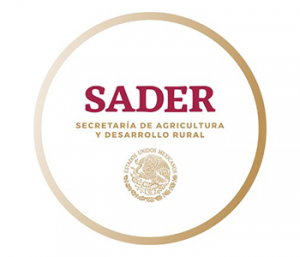
Ministry of Agriculture and Rural Development Mexico
The Ministry of Agriculture and Rural Development of Mexico promotes a policy, that assists producers to improve their production practices, to exploit more efficiently the competitive advantages of Mexico’s agricultural, livestock and fisheries sectors, and to integrate the economic activities from rural areas into larger productive chains. SADERS’s objectives are: to foster human resources development and patrimonial standards of Mexican citizens living in rural and coastal areas; to supply domestic markets with nutritious, healthy, safe and affordable foods produced in Mexico; to increase producer’s income by promoting Mexico’s presence in global markets; to promote value adding processes and the production of bio-fuels; to stop and reverse deterioration of ecosystems, safe water, and preserve soils and biodiversity; and to conduct the harmonic development of rural territories through coordinated actions and consensus building with all actors and agents in the rural society.
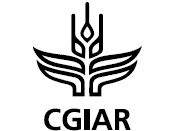
Consultative Group for International Agricultural Research
CGIAR is a global research partnership for a food-secure future. CGIAR science is dedicated to reducing poverty, enhancing food and nutrition security, and improving natural resources and ecosystem services. It’s research is carried out by the 15 CCIAR centers in close collaboration with hundreds of partners, including national and regional research institutes, civil society organizations, academia, development organizations and the private sector.

Wheat Initiative
Created in 2011 following endorsement from the G20 Agriculture Ministries, the Wheat Initiative provides a framework to establish strategic research and organisation priorities for wheat research at the international level in both developed and developing countries. The Wheat Initiative fosters communication between the research community, funders and global policy makers, and aims at securing efficient and long-term investments to meet wheat research and development goals. It also initiates and supports activities in order to enhance communication and increase access of all to information, resources and technologies

